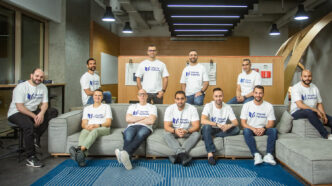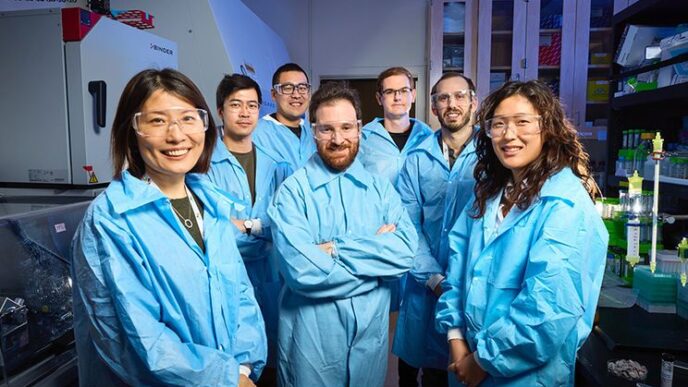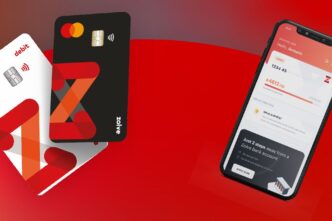While many African digital lenders rely on working capital to grow, MoneyFellows has achieved a rare feat: lending billions of Egyptian pounds with minimal debt and virtually no balance sheet exposure.
The Cairo-based fintech has now raised $13 million in a pre-Series C funding round led by Morocco’s Al Mada Ventures and Nclude, a fund backed by DPI. Other investors included Partech Africa and CommerzVentures, bringing MoneyFellows’ total capital raised to over $60 million.
With the new funding, the company plans to shift from steady domestic growth to full-scale regional expansion, starting with Morocco by the end of the year.
Digitizing Informal Finance with Minimal Risk
Founded in 2016, MoneyFellows is revolutionizing one of the oldest financial systems: the rotating savings and credit association (ROSCA). Common across emerging markets under various names — esusu in Nigeria, chit fund in India, and gam’eya in Egypt — ROSCAs involve groups of people contributing fixed amounts regularly into a shared pool. Each member receives a lump-sum payout during the cycle.
Through its mobile app, MoneyFellows digitizes and scales this traditionally offline model. Users can join or create “circles,” allowing them to save or borrow depending on their position in the cycle. The app uses behavioral data, credit history, and income information to match borrowers and savers efficiently.
Unlike typical lending businesses that borrow capital to re-lend at interest, MoneyFellows keeps its risk low by letting users fund each other. The company only uses its own capital when a ROSCA group has a vacant slot—currently the case in just 7–8% of active circles.
“If we have 10 slots and only nine people join, we fund the last one. That unlocks the group and monetizes the remaining nine,” explained founder and CEO Ahmed Wadi. This model has enabled the startup to lend at scale without relying on debt or carrying large loan books.
Wadi, who previously tested the ROSCA model in Germany and the UK, describes the company’s lean approach as both disruptive and sustainable. “We’ve cracked the model and reached profitability — all without working capital dependency,” he said.
Profitable Growth and New Markets Ahead
MoneyFellows has quietly become one of the few profitable fintechs in Africa. Since going live in 2018, the platform has grown from 4.5 million to over 8.5 million users. The average payout per user has nearly doubled, jumping from EGP 23,000 ($453) to EGP 45,000 ($906). Uptake has also grown among higher-income Egyptians seeking efficient, trustworthy financial alternatives.
The app’s viral growth is largely driven by its social design. “When two people in an offline ROSCA group join our app, they tend to bring the rest of their group along. That kind of organic growth is hard to engineer,” Wadi said.
Earlier this year, the company introduced a card product allowing users to receive payouts, make repayments, and spend across its merchant network. Additional financial products—including investments, payroll services, insurance, and remittances—are also in the pipeline, placing MoneyFellows in direct competition with other Egyptian digital banking startups like Lucky, Khazna, and Telda.
However, the next big challenge is taking the model outside Egypt. Wadi acknowledges the delay in regional expansion, originally planned for 2022, but attributes it to the complexity of building and refining the system.
“Digitizing ROSCAs isn’t like launching a basic savings product,” he said. “It involves matching users to the right spots, balancing thousands of circles, and building trust—something even big banks and telcos have failed to do successfully.”
Now, after nearly a decade of refining its platform and forming over 350 regional partnerships, MoneyFellows is preparing to launch in Morocco. The country offers favorable conditions: a large unbanked population, a strong informal savings culture (known as daret), and a regulatory environment supportive of fintech innovation.
The upcoming 2030 FIFA World Cup, co-hosted by Morocco, is also expected to accelerate digital adoption, offering a ripe opportunity for fintech players.
Beyond Morocco, the startup is evaluating other African and South Asian markets that share similar informal finance dynamics. However, Wadi admits that penetrating more formal or bank-dominated economies will test the model’s flexibility.
Commenting on the company’s impact, Omar Laalej, Managing Director at Al Mada Ventures, said: “We were impressed by how MoneyFellows modernized a centuries-old system. They’re making a real difference for thousands of families in Egypt.”
With profitability achieved and expansion underway, MoneyFellows is preparing for a larger Series C round in 2025 and is already in talks with local banks for limited working capital access to scale faster. As it moves forward, the company stands out as a rare example of fintech that blends tradition, technology, and sustainable growth.













